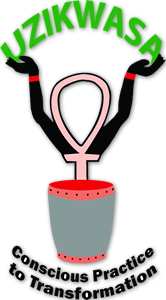The Impact of a Radio Program on Challenging Early and Forced Marriage Norms in Tanzania
Researchers evaluated the impact of a radio drama in Tanzania on attitudes toward early and forced marriage. Exposure to the program substantially increased the proportion of listeners who rejected early and forced marriage three weeks later. After 15 months, the effects were smaller but remained positive.
Between 2018 and 2030, approximately 150 million girls under the age of 18 will be subjected to marriage globally.1 This practice can restrict the autonomy of women and girls, increase the likelihood that they are subject to intimate partner violence, and limit their economic and social empowerment. In Tanzania, 36 percent of women enter into marriage before the age of 18,2 and 30 percent report having limited or no decision-making power when choosing their life partners.3 In the northeastern Tanga region, more than 40 percent of rural citizens accept early and forced marriage in at least some circumstances.
Evidence suggests that mass media campaigns can effectively change community perceptions and behaviors regarding gender-based violence. For instance, a study conducted in rural Uganda demonstrated that screening videos encouraging viewers to speak out against violence against women led to a decrease in reported rates of such incidents in the villages where the videos were shown.4 The rapid expansion of radio coverage in Tanzania has dramatically increased the reach of radio programs that address social issues, including gender relations.5 Radio may therefore serve as a valuable platform to foster positive changes in attitudes and behaviors related to early and forced marriage and promote gender equality.
Researchers partnered with IPA and the community-based non-governmental organization UZIKWASA to evaluate the impact of a radio program on changing attitudes toward early and forced marriage and gender relations. The radio program, Tamapendo, was a drama written, acted, and produced in Tanga that focuses on locally recognizable Islamic teachings about a girl’s right to resist early forced marriage. In 15 randomly selected villages, 40 villagers were invited to a community event to listen to Tamapendo. In 15 other randomly selected villages, 40 villagers were invited to a community event to listen to an unrelated radio drama about HIV and served as the comparison group. Select villagers were asked about their views on early and forced marriage and gender equality before the screenings, 3 weeks after the screenings, and again 15 months later.
Tamapendo had a significant positive impact on listeners’ beliefs about early and forced marriage. Three weeks after the screenings, listeners were 9.3 percentage points more likely to reject a girl’s forced marriage (from 82 percent to 91.3 percent) and 4.8 percentage points more likely to reject a girl’s early forced marriage (from 94 percent to 98.8 percent). 15 months later, the effects of Tamapendo weakened — dropping to a 2.5 percentage point difference in listeners rejecting forced marriage relative to the comparison group — but remained significant.
Sources
1 ICRW (2018). Child Marriage Factsheet.
2 3 MoHCDEC (2017). National survey on the drivers and consequences of child marriage in Tanzania. National Report on Child Marriage. (Tanzanian Ministry of Health, Community Development, Elderly and Children Report).
4 Green, Donald P., Anna M. Wilke, and Jasper Cooper. "Countering violence against women by encouraging disclosure: A mass media experiment in rural Uganda." Comparative Political Studies 53, no. 14 (2020): 2283-2320.
5 UNESCO, “Community radios promote the empowerment of girls and young women through education in Tanzania,” United Nations Educational, Scientific, and Cultural Organization, August 20, 2021, https://www.unesco.org/en/articles/community-radios-promote-empowerment-girls-and-young-women-through-education-tanzania













